For many years now, the United States and Europe have been suffering from a chronic shortage of traditional aviation pilots. In the first half of 2024, manufacturers delivered 322 business jets, which was a 9% increase from the same period in 2023. Embraer, Gulfstream, Bombardier, and Dassault Aviation all increased their shipments compared to the previous year, and that is only the general aviation component of the issue.
Commercial airlines have also seen an increase in aircraft deliveries. According to Boeing's Commercial Market Outlook, the global commercial fleet is projected to grow at an average rate of 3.2% annually, indicating sustained growth in the coming decades.
All of this growth only means one thing: the crewed aviation industry is in need of a deluge of new pilots to replace an increasing number of mandatory retirements. This is why the Department of Homeland Security has a visa program designed to attract foreign pilots to come to the US under the Permanent Workers Visa Program, which allow non-citizen pilots to be eligible for an employment-based visa if they qualify under categories that are constantly changing according to the needs of the nation.
We personally know of many traditional pilots that have qualified under the Permanent Worker visa program and are now contributing to alleviate the pressure on the existing pool of commercial pilots in the US, but how about drone pilots? Is there a shortage of seasoned drone pilots in the US? According to Rene Paez, CEO of the USA Drone Academy, they are graduating an average of 10 new pilots a month in their Part 107 program, and it would be safe to assume that many other training facilities throughout the country are preparing similar numbers.
These pilots are fresh out of the academy and most have zero or very little time of real flying, so the possibilities of using them for complex missions right away is probably nil.
This is where the Permanent Worker Visa Program might come in handy. Recently, we heard of probably the first drone pilot that has been granted Permanent Worker visa on the merits of his number of flying hours and incredible accomplishments. 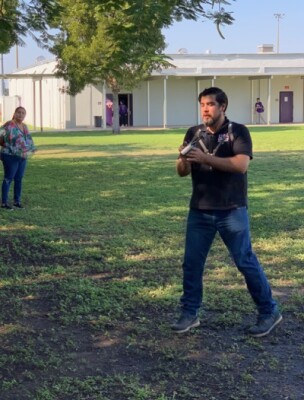 We first wrote about Dennis Lobos about two years ago, when he arrived in the country under a different visa and in June 2023 applied to the EB-1 based on his 12 years of experience, more than 4,000 of flying time, and extraordinary achievements that go beyond flying an uncrewed aircraft.
We first wrote about Dennis Lobos about two years ago, when he arrived in the country under a different visa and in June 2023 applied to the EB-1 based on his 12 years of experience, more than 4,000 of flying time, and extraordinary achievements that go beyond flying an uncrewed aircraft.
“When I lived in Chile and the uncrewed aviation industry was just a dream, I began flying home-made drones trying to master the controls in order to make them second nature to me,” Dennis said. “Then came my big break – a government entity had acquired some drones, and they were planning to find out if their capabilities could be added to their existing workflows, and guess what? It worked!”
Before starting flying drones, Dennis was deep into remote controlled (R/C) aircraft and that gave him the necessary experience to also understand how the mechanisms work and become proficient trouble shooting and repairing the drones of his employer.
“In just a few months, we were doing things better and more efficiently and then I was asked to hire more pilots, all of whom were trained by me,” Dennis said with pride. “Eventually, I moved on to a different organization in which we were in charge of live monitoring of certain areas of interests, and I did that for over a year.”
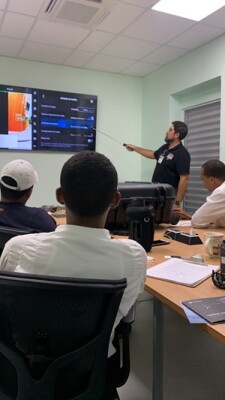 In time, Dennis became a celebrity in the world of uncrewed aviation in his native Chile, and soon he found himself giving lectures at universities and supervising a large group of public safety officers that had obtained their pilot licenses.
In time, Dennis became a celebrity in the world of uncrewed aviation in his native Chile, and soon he found himself giving lectures at universities and supervising a large group of public safety officers that had obtained their pilot licenses.
“Last August, I received a notification from the immigration authorities that my petition had been approved, and more recently letters from the Department of Homeland Security advising me on what the next steps are and what I need to do to wrap-up the process,” Dennis reported. “I look forward to becoming a resident and contribute to this great country.”
Qualifying under an EB-1 visa is not easy and definitely not for everyone, but pilots like Dennis are needed in a country where job opportunities are scarce, and the possibility of accumulating flying hours is not a short-term prospect. Dennis is currently working in the Texas offices of DroneUp and establishing the basis of a successful uncrewed aviation operation in the US.


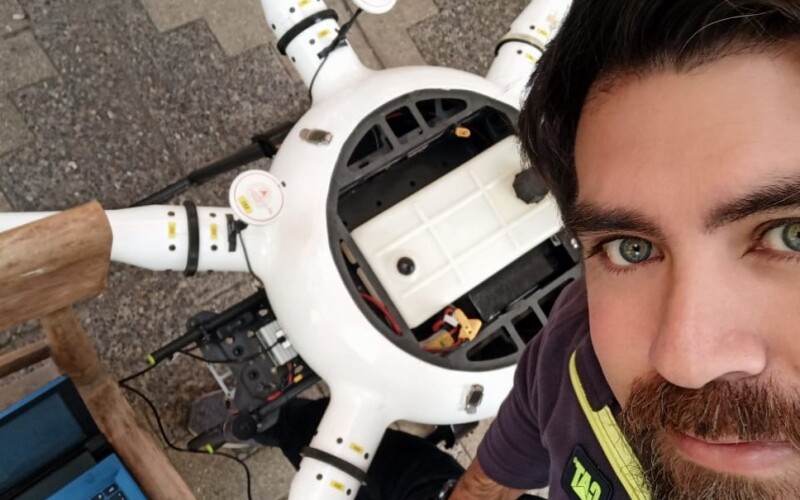

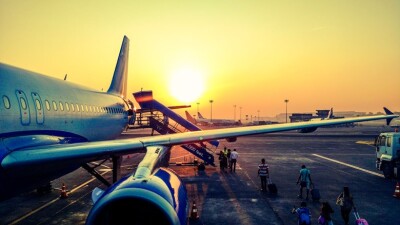
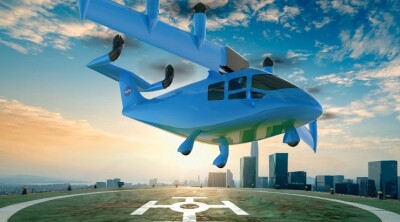









Comments